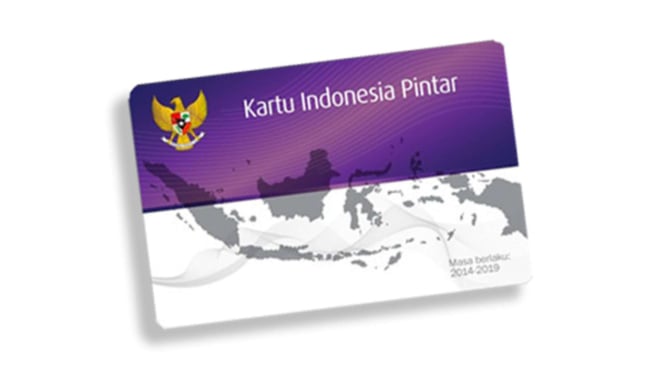In today’s business landscape, maintaining strong and meaningful relationships with customers has become imperative for companies across all industries. This is where CRM relationship management steps in, serving as a catalyst for building trust, loyalty, and long-term success. The advent of search engine optimization (SEO) has further amplified the importance of implementing effective CRM strategies to ensure businesses are discoverable and relevant in the digital realm.
CRM, or Customer Relationship Management, encompasses an array of technologies, strategies, and practices aimed at nurturing and enhancing interactions with customers. It enables businesses to develop a deeper understanding of their customers by collecting and analyzing valuable info and preferences. By organizing this information, companies can customize their offerings, deliver personalized experiences, and ultimately cultivate stronger relationships.
With numerous companies vying for customer attention, capturing and maintaining customer loyalty can be a challenging task. Integrating CRM into an organization’s operations provides the tools needed to not only attract customers but also retain them. By streamlining customer interactions, CRM relationship management software facilitates seamless communication, efficient lead nurturing, and increased customer satisfaction.
Search engines have become the go-to resource for individuals seeking products, services, or information. This is why optimizing content for search engines has become integral to business success. By incorporating relevant keywords and phrases into their online content, companies can significantly improve their search engine rankings and enhance visibility to potential customers. Through effective CRM relationship management, businesses can identify their sasaran audience’s search patterns, preferences, and needs, optimizing their content to align with these search queries.
Moreover, CRM software can provide invaluable insight into customer behavior, enabling businesses to track their customers’ online journeys and identify the touchpoints most influential in their decision-making process. Armed with this information, companies can tailor their content to engage customers, offering exactly what they are searching for. By delivering personalized and relevant content, businesses can foster deeper connections with customers, establishing trust and credibility.
CRM relationship management also plays a vital role in customer feedback management. By leveraging CRM technologies, companies can collect and analyze customer feedback on their products, services, or overall brand perception. This helps businesses identify areas for improvement, refine their offerings, and address customer concerns promptly. Engaged customers who feel heard and valued are more likely to form enduring relationships with the brand and recommend it to others, contributing to the company’s growth and reputation.
In conclusion, CRM relationship management lies at the core of building and maintaining successful customer connections. With the rise of SEO, implementing effective CRM strategies has become essential for businesses aspiring to thrive in the digital landscape. By leveraging CRM technologies, companies can forge personalized experiences, optimize their online content, and nurture long-lasting customer relationships. As competition continues to intensify, embracing CRM relationship management is not merely an option but an imperative for organizations striving to excel in today’s customer-centric business world.
Customer Relationship Management (CRM) is a business approach to managing and improving all aspects of an organization’s interactions with its customers. It provides a strategic process that focuses on customer retention and relationship growth. CRM relationship management, however, can be complex and tricky. This article delves into the strengths and weaknesses of CRM, effective ways to harness its power, and practical tips for successful implementation, giving businesses a comprehensive understanding of this invaluable tool.
Understanding CRM: The Basics
At its core, CRM is all about info – customer data. This can include anything from contact details to interaction history with the company such as purchase history, complaints, and inquiries. By collecting and analyzing this information, businesses can anticipate customer needs and tailor their services accordingly to enhance customer satisfaction and loyalty.
Strengths of CRM Relationship Management
The primary strength of CRM relationship management lies in its ability to gather and analyze customer data. This data-driven approach enables companies to personalize interactions, improve customer service, identify sales opportunities, and build strong, lasting relationships with customers. CRM also promotes organizational efficiency by improving team communication and automating many business processes.
Weaknesses of CRM Relationship Management
Despite its numerous benefits, CRM is not without its drawbacks. Implementation can be costly and time-consuming, particularly for small and medium-sized enterprises with limited resources. Poorly implemented CRM systems can lead to info inaccuracies, which can negatively impact decision-making and customer interactions. Additionally, CRM’s effectiveness relies heavily on user adoption – if employees are not fully engaged with the system, its potential benefits may not be fully realized.
Ways to Maximize CRM Benefits
To reap the full benefits of CRM relationship management, businesses must be strategic in their implementation. This includes clear communication of CRM goals and benefits to all staff, comprehensive training to increase user adoption, and regular monitoring and tweaking of the system to ensure it continues to meet business needs and objectives.
Tips for Successful CRM Implementation
Success with CRM begins with choosing the right solution for your business. Consider your specific needs and goals, and select a system that can be customized to match. Involve all stakeholders, including sales, marketing, customer service, and IT, to ensure the system meets everyone’s needs. Lastly, always remember that CRM is not a one-time project, but a continuous process that requires regular review and updates.
FAQs
What is CRM relationship management?
CRM relationship management refers to the strategic process of managing and improving a company’s interactions with its customers. This can involve using customer info to improve customer service, identify sales opportunities, and build long-term relationships.
What are the strengths of CRM relationship management?
Strengths of CRM relationship management include its ability to collect and analyze customer data, enable personalized interactions, improve organizational efficiency, and build strong customer relationships. However, its effectiveness depends on successfully implementation and user adoption.
What are some tips for implementing CRM successfully?
Successful CRM implementation involves choosing the right CRM system for your business, involving all stakeholders, providing comprehensive training to increase user adoption, and regularly reviewing the system to ensure it continues to meet business needs and objectives.
In conclusion, CRM relationship management is a powerful tool that, if understood and utilized properly, can greatly enhance a business’s customer relations and effectiveness. It offers various benefits but also comes with potential pitfalls, making understanding and careful implementation crucial. With this comprehensive guide, you are equipped with the knowledge and strategies necessary to navigate CRM relationship management successfully. Why wait? Act now and start reaping the rewards of successful CRM implementation today.

 2 bulan yang lalu
2 bulan yang lalu






 English (US) ·
English (US) ·  Indonesian (ID) ·
Indonesian (ID) ·